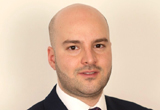 There have been increasing levels of research around the concept of surgical expertise and its development. It’s an intriguing debate, a greater understanding of which will help to drive professional standards and quality of patient care. As pressure on surgeons intensifies due to funding cuts, growing caseloads, and shorter working weeks, the drive to improve levels of expertise must be a priority for a progressive profession.
There have been increasing levels of research around the concept of surgical expertise and its development. It’s an intriguing debate, a greater understanding of which will help to drive professional standards and quality of patient care. As pressure on surgeons intensifies due to funding cuts, growing caseloads, and shorter working weeks, the drive to improve levels of expertise must be a priority for a progressive profession.
An expertise based approach for surgical training has great potential for targeted approaches to surgical skills education. There is ample evidence to support the use of simulation in developing surgeons’s core skillsets. In fact, the UK’s chief medical officer, Sir Liam Donaldson, explicitly stated that simulation will be particularly important in healthcare education, especially for surgery and related craft specialities.
The debate around the development of expertise is centuries old. The Victorian scientist Sir Francis Galton argued that “skill acquisition” is based on a set of innate biological capacities, which limits the level of achievement that can be attained. His proposals were based on eminent individuals in fields including science, law, music, art, literature, and politics who predominantly happened to be from the same families. He argued that height and body size were determined genetically and that similar innate mechanisms must determine mental capacities. Whilst the view that innate ability is important for surgical expertise still holds, surgeons are increasingly recognising the crucial role that effective training has, although surgeons with innate abilities may perhaps train more quickly and efficiently.
The exact natures of “expert performance” is perhaps best defined by the renowned psychologist K Anders Ericsson, who believes most professionals reach a stable, average level of performance and maintain this status-quo for the rest of their careers. Repeated practice is thus crucial to gain expertise. Although such work largely stems from observational work in domains outside medicine, it has been shown that practice must be deliberate, sustained over many years and underpinned by a determination to improve; four hours of deliberate practice daily for approximately 10 years purportedly leads to expertise in chess, music composition, sport, art, and science (the 10-year or 10,000-hour rule).
In his 1918 paper “The Training of the Surgeon,” presented at the Hamilton Medical Week, Canadian surgeon Jasper Halpenny argued that a comprehensive system of education, exercising a wide range of physical and mental capabilities were of primary importance for developing surgical skills. However, whilst these are undoubtedly key, it’s important to note that surgical experts are not just mere “technicians;” they are adaptive experts who are dynamic in their approach and can acutely adjust their skills to problems they encounter, in addition to innovations in technology and knowledge.
It is important to understand that the modern surgeon requires a diverse skill set in order to improve outcomes and quality of patient care within the UK. Modern surgical education is holistic in its approach, and rightly so. It aims to cultivate surgeons with the appropriate technical and non-technical skills, and an awareness of this balance is critical. Personal attributes such as professionalism and the ability to work and communicate well with others, alongside being able to manage other members of a multi-professional surgical team must be factored into our perception of expertise; these are crucial to the success of a surgical procedure. This will help strengthen our understanding and benefit instructional technique, allowing surgeons’ capabilities to improve. Whilst there have been attempts to determine the ‘desirable’ personality traits of a surgeon, further research is required to ascertain what personal qualities set some surgeons apart from the rest.
Factors such as a shorter working week for trainees, increased service requirements, and the pressure of increasing operating room turnover, are currently reducing educational opportunities for trainees to improve their surgical skills. Additionally, the increased complexity of surgical caseloads and the greater awareness of medico-legal implications may prevent junior trainees from achieving technical proficiency within a ‘normal’ working day, unless simulation facilities are readily available and carefully integrated into the curriculum, thereby leading to an improvement in the delivery of surgical skills training.
A thorough understanding of the mechanisms of acquisition of surgical expertise is needed to drive improvement in surgical care. If the nature of expert performance and its development in individual surgeons can be understood, surgical education training programmes can be modelled towards developing more effective and efficient experts in a shorter space of time, driving patient care at all levels. Although innate abilities play an important role in the development of surgical expertise, given the attributes of the modern day surgeon, and the importance of education and training, it becomes clear that surgical experts are in fact made, not born. We need to broaden our understanding of expertise accordingly to continue the development of our strong surgical profession, allowing trainees to achieve their potential whilst optimising patient care, thereby continuing to drive standards in the long run.
This information represents an invited perspective of the paper recently published by Sadideen et al entitled “Surgical experts: born or made?” (Int J Surg. 2013;Jul 6 doi: S1743-9191; Epub ahead of print).
I declare that that I have read and understood the BMJ Group policy on declaration of interests and I have no relevant interests to declare.
Hazim Sadideen is a plastic surgery specialty registrar and member of the British Association of Plastic, Reconstructive and Aesthetic Surgeons.
He completed a Masters in surgical education and has a keen interest in novel approaches to simulation and the promotion of effective learning. He has a passion for teaching and is the recipient of prestigious national and international awards for his work.
